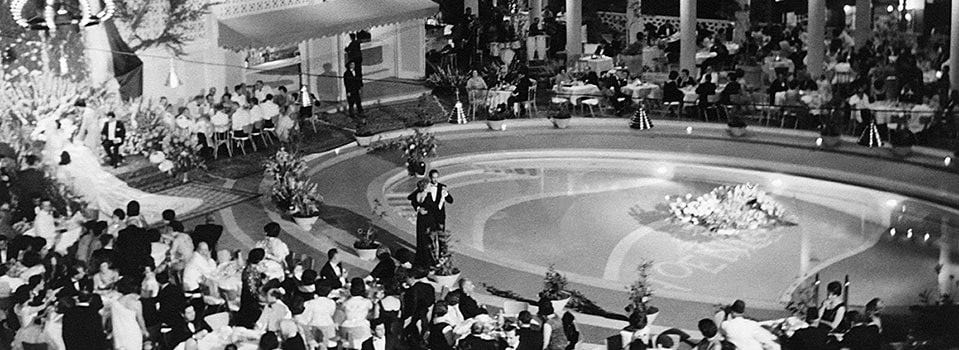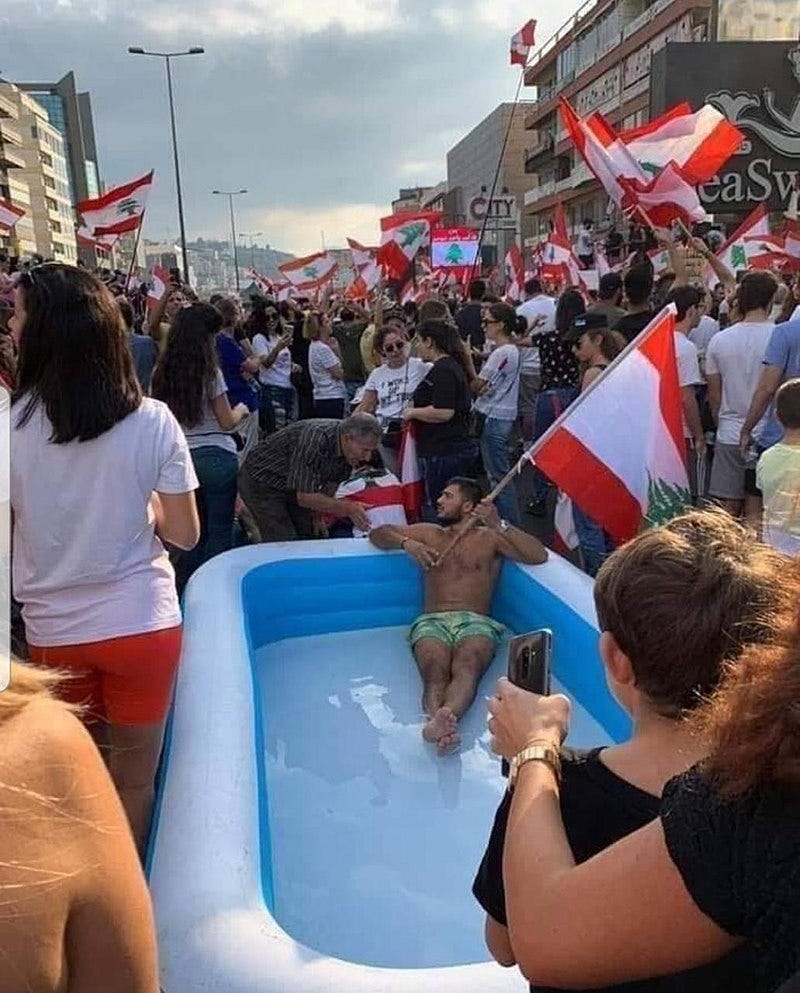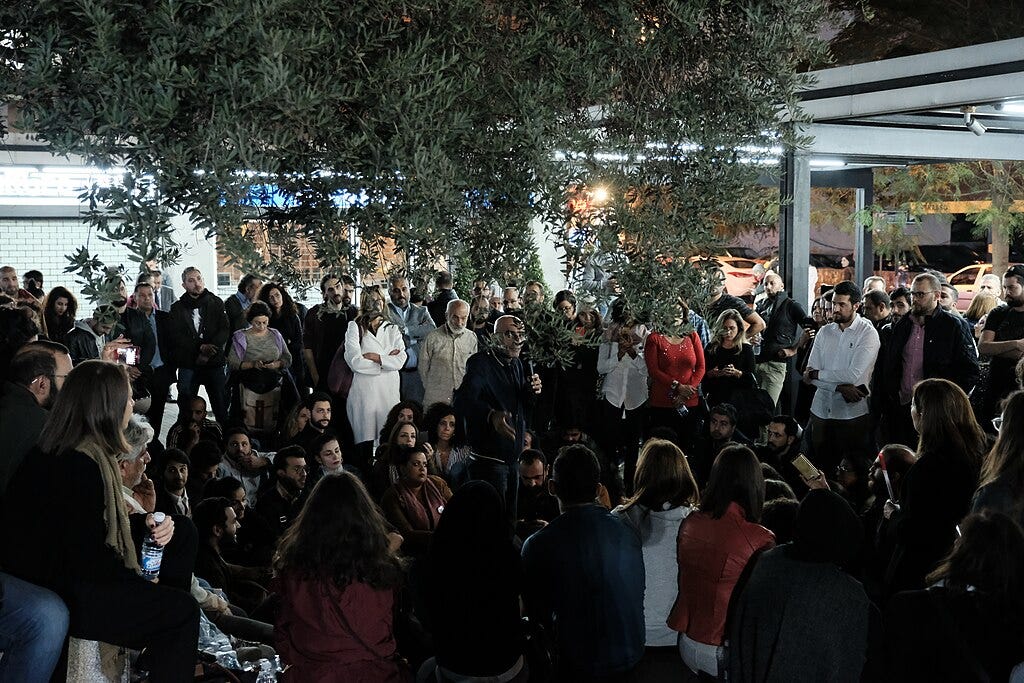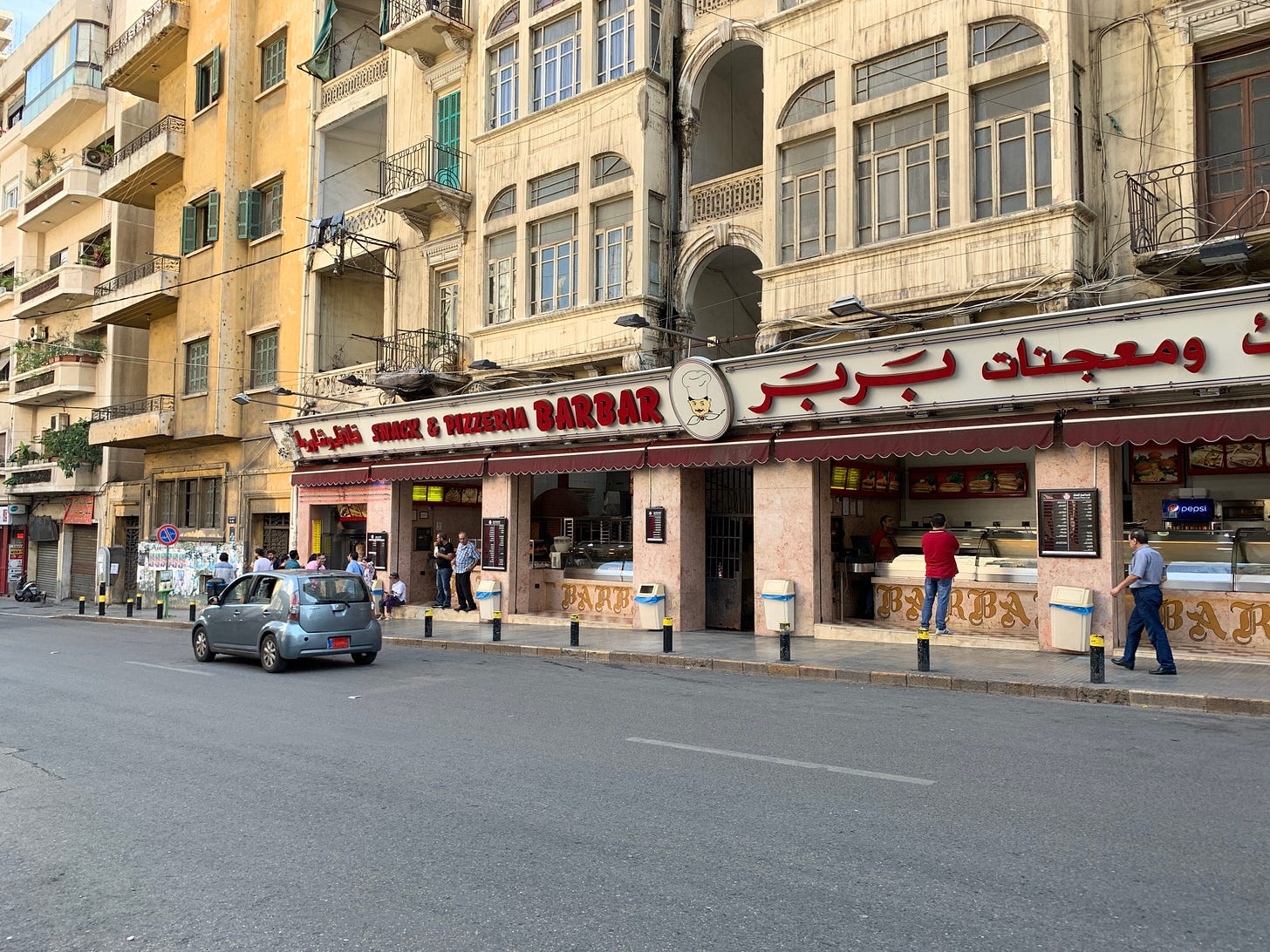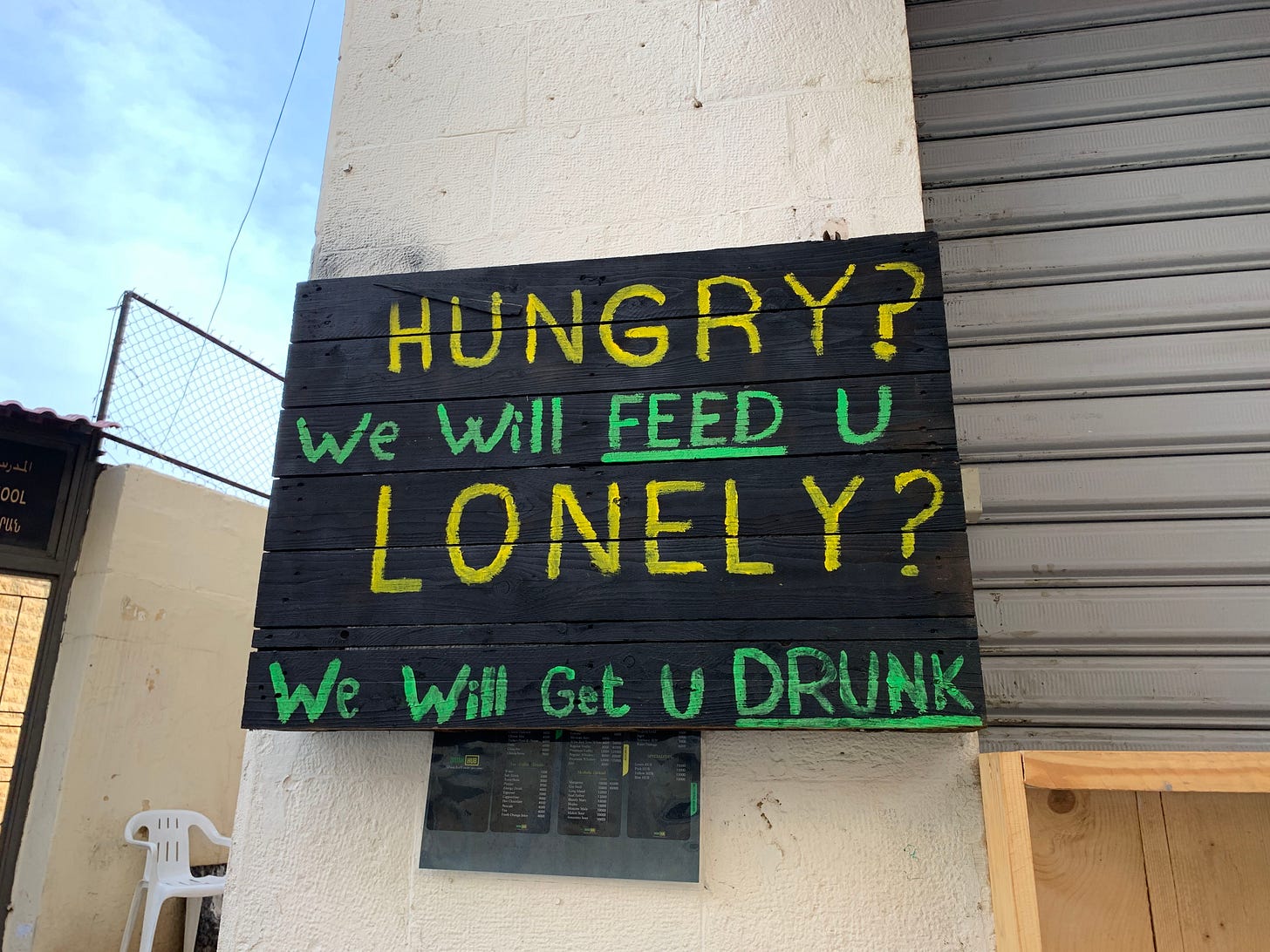Beirut is such a complex, misunderstood place - let me start with that premise. It’s anything but black and white. For people of my age (early 20’s), we grew up with a Beirut at war with itself - between 1975 and 1990 there were 150,000 casualties and one million people left Lebanon - thousands came to my hometown of Ottawa alone. The former Senator, MP and Mayor of Ottawa, Mac Harb, was one of them. We dimly remember if at all, (OK, so not early 20’s) pre-civil war Beirut, when it was the tourist-friendly, nightclub-thumping, economically booming “Paris of the Middle East.” The place to see and be seen for international jet-setters. This period lasted from roughly the 1920’s until 1975.
In my travels around the world these past several years, I have been struck by how the vast majority of the world is much better off, quality of life-wise, than it was only a few decades before. The stats on this are irrefutable and it is one of humankind’s greatest all-time achievements. It is a positive news story of epic proportions that receives far too little acknowledgement. In 1820, according to historian Michail Moatsos, three quarters of the world’s population lived in extreme poverty vs. less than 10% today. In Beirut, however, like Argentina (upcoming post), Zimbabwe (future post) and a few others, the economy has been going in the wrong direction for quite a while now. Just remember, these are anomalies, not the norm. In spite of that, even in Beirut, extreme poverty as it existed for the vast majority of the world’s population for most of world history, is virtually non-existent although, of course, there is some poverty, like everywhere else.
Anyways, back to Beirut, over 5000 years old, one of the world’s oldest continuously inhabited cities. I had always wanted to visit since the ending of the Civil War and after hearing that the city had been rebuilt and the famed nightlife had returned by the late 90’s. In the Fall of 2019 I finally got my opportunity. I would fly into Beirut from Athens and stay for a few days enroute to Cairo to see the Pyramids (previous post).
I booked an AirBnb in a “safe” part of town, Achrafieh Heights, a mostly Christian area. In fact, Beirut is roughly evenly divided between Christian and Muslim with the Christians living in East Beirut and the Muslims in the West. Almost all of them, Christian or Muslim, are of Arab descent and most of them co-exist peacefully. True story! My jolly AirBnb host Gaby (and he was) was Armenian-Lebanese and I was surprised to learn that Armenians have lived and thrived in Beirut for centuries. They are one of the most economically successful ethnic groups in Lebanon and comprise over 4% of the total population. I booked his place in September but in the ensuing weeks an economic crisis borne of top-level corruption, excessive money-printing, artificially high interest rates on savings, sudden large outflows of US dollars plus restrictions on withdrawals from the small US dollar accounts most Lebanese relied on for receiving foreign remittances, erupted into large-scale protests, broadcast daily on CNN. I wondered if I should cancel my booking so I asked Gaby - “Is it safe for me to come now?” His answer was a rather disconcerting, “hmmm…50-50.” 50-50?! Is that your best offer?! Seriously?! So I went, as I’m a glass half full kind of guy (or a lunatic).
They called it the WhatsApp Revolution, fueled by young people angry at proposed taxes on WhatsApp calls, in addition to gas and tobacco. Remember I mentioned that over a million Lebanese had exited the country during the Civil War (and now over 4 million live abroad) and they had largely fueled the reconstruction afterwards through their continuous remittances to their homeland, even during the Financial Crisis of 2008. WhatsApp was a free way of maintaining the connections with the Lebanese diaspora and keeping the money flowing in. After years of one problem after another signifying gross government incompetence and corruption, the people had had enough. Shortly after a series of wildfires which burned unabated around Beirut due to the lack of functioning fire-fighting equipment (corruption, incompetence, you name it) the government declared an economic emergency in September 2019, and the people then took to the streets, overwhelmingly young and surprisingly peaceful.
I arrived during the first week of widespread protests and Gaby warned me not to go downtown in order to avoid “trouble.” He told me that I had nothing to fear from the military, who were parked with tanks, machine guns and bunkers guarding the entrances and exits to East Beirut. “The soldiers are our friends,” he stated and were there for the protection of the citizens of Beirut. Indeed, the first time I approached one of their outposts, they smiled, said “Welcome to Beirut!” in English and waved me on through. One guy patted his machine gun, smiled and said, “we’ve got you.” I saw no other foreigners during my three day stay. Quelle surprise!
I spent my first day wandering Hamra street, packed with restaurants, bars, cafes, shisha galore and family-owned shops of all descriptions. With all of the Starbucks, Nandos, Dominos and Applebees, it could easily pass for just another western outpost. However, then I wandered into Babar Snack and Pizzeria across from the Picadilly Theatre. I had the most delicious Shwarma in the world (at least according to their website and my tastebuds). Actually this place has been running non-stop since it was started in the middle of the Civil War in 1979 and it now serves 2500 customers a day. You can order virtually anything and it is absolutely, mouth-watering delicious, from pizza (there are still 5000 Italian-Lebanese in Beirut) to manoush’eh, Lebanon’s national pie, hamburgers to falafael, BBQ to roasted chicken and much more. I ate here each day I was in Beirut and still only scratched the surface - Lebanese food is delicious!! This Beirut institution, reflecting the hard-working, can-do spirit of this city and its surprisingly friendly people (after all they have been through) serves “the rich, the famous, the poor and the notorious, as well as the nightlife goers, 24/7.” The staff were super friendly and genuinely interested in their customers and no, I wasn’t paid to post this, haha!
The second day in Beirut I decided to wander close to downtown and before I knew it I was at a military checkpoint on the eastern edge of central Beirut. The soldiers waved me through with a smile and I assumed it must be safe. I walked through the area where large protests had occurred the night before and it was totally fine. There were a few booths staffed by university students and they were sharing their thoughts with passersby on what reforms should be immediately carried out by the government. There was no violence or shouting, just smiling people exchanging their opinions respectfully. I found it quite remarkable as this is totally not our image in the West about how Middle Eastern protests typically operate. It was genuinely encouraging to me and gave me optimism for the future. Beirut has a lot of problems but at least there are lots of young, well-educated, reasonable people who want non-violent positive change and are willing to work for it. Why doesn’t this ever get reported in our press?! Once again, you have to see things for yourself sometimes to get a much more accurate idea of what is REALLY going on, as opposed to the media’s sensationalized version. At the end of the day, most of these people want the same things we want, the same things that everyone around the whole world want - a stable economy, a job, an affordable and slowly improving quality of life. A government they can freely select and which will look after their interests. Peace. I enjoyed my day wandering around peaceful downtown Beirut. When I returned to my AirBnb I told Gaby where I had been - even he was shocked.
For my final day in Beirut, I walked along the gorgeous oceanfront, where the sea is a beautiful clear turquoise and kids were swimming, their fathers fishing and the up and coming showing off their social status. Could have been Vancouver, except with better weather! This was West Beirut which is majority Muslim - I found zero difference from East Beirut. This area was prosperous with lots of highrises along the oceanfront corniche which went on for many kilometres. The people were friendly, relaxed and there were zero obvious signs of trouble. I just saw families out and about, enjoying their weekend. I felt completely safe and accepted.
Gaby dropped me off at Beirut Airport on my last day and the security was oppressive. The area around the airport is, unlike central Beirut, not safe as the militants can be found in adjacent suburbs. As a result, there are three separate security lines you have to endure (arrive EARLY). There is a security line just to get into the check-in area which took me 30 minutes to pass through. Next there is an immigration line after check-in which took over an hour to pass through. Finally there is another security check at the gate before boarding. One of the worst airport experiences, unfortunately completely necessary. Still, my short visit was overwhelmingly positive and I would love to visit again when the situation improves, as it inevitably will. The food, the surprising mix of people, the gorgeous ocean, the interesting history, the nightlife - it’s all good. I’ll be back someday.
Post-script: Only a few months after my visit, the horrific 2020 Beirut Explosion took place, killing over 200 and injuring 7000 more, causing over $15 billion in property damage (including Gaby’s AirBnb, which was just a few hundred metres south of the port - he rebuilt and you can still rent it on AirBnb). It was a real cruel blow to beautiful Lebanon and recovery continues to this day. This event was one of the most powerful non-nuclear explosions in human history and heard over 240 km. away in Cyprus. It blew out the windows at Beirut Airport over 10 km away. As of 2023, more than 80% of Lebanon’s population is now considered to be poor according to the UN. The country is now classified as a failed state. Lebanon is suffering the worst economic crisis in decades. As of 2023, the GDP has shrunk by 40% since 2018, and the currency has experienced a significant depreciation of 95%. The annual inflation rate exceeds 200%, rendering the minimum wage equivalent to approximately $1 per day. Such a shame. It was just 14 years earlier, in 2009, that the New York Times ranked Beirut as the world’s #1 tourism city for its nightlife and hospitality.





